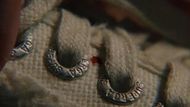When Knives Out was released in 2019, it not only resuscitated the traditional murder mystery but also introduced us to Benoit Blanc, a detective like no other. Performed with magnetic droller by Daniel Craig, Blanc imparted a one-of-a-kind combination of Southern charm, piercing intellect, and offbeat theatrics to the screen. With his odd metaphors, gentle drawl, and high-level intuition, he emerged as the film's breakout star, making each of his scenes memorable.
Unlike ordinary detectives who use force or intimidation, the wit of Blanc is that he can disarm culprits with courtesy, probe deep through observation, and crack cases with a sense of morals. His model of justice is as complex as the case itself, making him as engaging as the case he unravels.
Whether subtly depressing a piano key in an interview or reciting lines of iconic grandeur à la Shakespeare, Benoit Blanc brought a welcome and unforgettable spin to the detective genre. In the following, we delve into the ten greatest moments in Knives Out (2019) when Blanc's character really came alive, moments that fans continue to discuss, quote, and replay long after the credits have ended.
Best Benoit Blanc moments from Knives Out that fans can't get over
1. The “Doughnut Hole” Monologue

Benoit Blanc's surreal but dazzling "doughnut hole" monologue is without a doubt his most quotable scene. What begins as a tortuous metaphor for a hole in a hole turns into an eerily precise description of the case's intricacy. Daniel Craig reads it with such stone-faced earnestness that he turns absurdity into brilliance. Rian Johnson, the director, explained the line was completely written and not ad-libbed, and indeed, the movie's masterful scripting is vindicated. The moment has since been memeified throughout pop culture, from Reddit posts to SNL parodies. It's a testament to the weirdness of Blanc and the dedication to crafting a detective unlike any other.
2. Sitting in the Background Playing Piano

In a subtle but memorable series of moments, Benoit Blanc plays behind the police interrogations, hitting one piano key every time a clue reveals itself. It's not purely symbolic; this conscious action echoes Blanc's investigative cadence, as if he's composing the drama in the moment. Composer Nathan Johnson assured that the struck piano key indeed corresponded to the Knives Out musical key, marrying sound and story perfectly. This quiet action demonstrates Blanc's careful observation technique and reminds audiences that, though silent, he's in charge every step of the way.
3. First Entrance with the Newspaper Tap

Blanc's entrance isn't showy in the classical sense; it's subdued, elegant, and strangely unnerving. Throughout Detective Elliott's interviews with the Thrombeys, a metallic plink resounds through the scene: Blanc strikes a piano key with a rolled-up newspaper. It's melodramatic and enigmatic, immediately claiming attention without saying a word. Daniel Craig allegedly rehearsed that very tap for several hours to perfect the timing, ensuring it hit with effect. The instant has become emblematic of the detective's presence ever since: unanticipated, penetrative, and significant. The audience gets all it needs to know in this initial impression. Blanc is courteous, but he's always scheming.
4. Calling the Thrombeys Out One by One

Benoit Blanc's patience is a disguise for a weapon. While interrogating the family members, he allows each of the Thrombey family members to reveal themselves through arrogance, entitlement, and meticulously crafted deception. Rather than calling out their contradictions directly, he lets them emerge organically, displaying how weak their narratives actually are. What's interesting is that Blanc isn't really solving a case; he's observing a family dynamic based on greed and betrayal. Off-camera notes reveal that a few of the cringeworthy pauses were ad-libbed by Craig to surprise the actors and get genuine reactions. This is where Blanc's genius as a psychologist really comes to life, not only as a detective.
5. Letting Marta Confess Without Pressure

Among a cast of characters, each more manipulative than the last, Benoit Blanc's handling of Marta Cabrera is mercifully kind. As she starts to disintegrate under shame, he doesn't pressure or play on her. He makes it so that the truth is an easy choice. This empathy is central to his character; it's not merely about figuring out the case but being decent. Craig has previously stated in interviews that Blanc's sense of morality "comes from a place of old-world chivalry," which is why he takes his gentle treatment of Marta. It's a poignant reminder that in a corrupt and privileged world, empathy can still take the lead.
6. Realizing the Toxicology Report Was Switched

When Benoit Blanc finds out about the faked toxicology report, the mystery hinges. His measured patience dissolves into intense concentration as he links the disconnected puzzle pieces. This twist presents Blanc in his most acute form, demonstrating that not even the most minute clue will elude him. Rian Johnson explained in a podcast that the whole conclusion was reverse-engineered from this single twist so that it's the axis of the whole story. The brilliance of the scene is the gradual build; far from a dramatic revelation, Blanc's epiphany is palpably earned and inevitable. It's detective storytelling at its most rewarding and unequivocally Blanc's greatest mental moment.
7. Spotting the Blood on Marta’s Shoe

Only Benoit Blanc could notice a single drop of blood that was microscopic and realize it meant the world. At the beginning of the film, he sees the crimson smudge on Marta's white sneaker but remains silent, a quiet but effective choice. He allows the truth to reveal itself naturally, relying on his gut rather than on provocation. Enthusiasts online tend to miss this on the first view, so rewatching becomes a treasure hunt. Craig made a self-revealing comment that he used reading glasses during this scene, not only for fashion purposes, but to accentuate Blanc's hyper-attentive personality. It is a subtle but critical scene that reinforces his reputation as a detective who notices what others ignore.
8. Piecing Together the Timeline at the End

The last big reveal, in which Blanc reconstructs the evening of Harlan's murder, is beautifully timed. His reading is half Sherlock Holmes, half Southern storyteller, layering on facts with panache. Daniel Craig speaks the monologue with a rhythmic flow that's almost musical, holding the audience transfixed. Fun fact: the script for the film had originally had this scene broken up into several parts, but Rian Johnson opted to keep it intact in order to generate momentum. As Blanc guides the characters through the events step by step, it's as if watching a magician unveil the trick. The payoff isn't merely narrative; it's poetic justice for Marta and ironic justice for the Thrombeys.
9. His Unexpected Kindness Toward Marta

In contrast to the older detectives, who rely on witnesses, Benoit Blanc develops a real relationship with Marta. He consistently stands up for her, even when circumstantial evidence piles up against her, because he is able to look past superficial details. Blanc's good nature isn't feigned; it's tactical and ethical. He embodies the outlier detective who feels that defending the innocent is just as vital as convicting the guilty. Craig has said in interviews that his role model was Agatha Christie's Hercule Poirot "with more soul." This made the hard-boiled mystery warm up. It's what makes the finale so pleasing to watch; less than Marta succeeds, but Blanc assisted her in succeeding.
10. That Final Southern Gentleman Line

"I suspect foul play, and I have eliminated no suspects." The line, recited with deliberate Southern deliberation, instantly became the character's trademark. It's funny, melodramatic, and surprisingly deep, all traits of Benoit Blanc himself. Surprisingly, this was not the script's initial opening; Rian Johnson inserted it after Daniel Craig couldn't resist the line during rehearsals. It became the ideal punctuation to bring in a character who subverts every expectation. It is now quoted by fans as shorthand for any drama unfolding, testament to its pop culture significance. In a single sentence, Blanc invites us into his world of wit and intrigue.
Benoit Blanc can talk with a Southern accent and use poetic metaphors, but underneath his bizarre charm is one of film's greatest minds. In Knives Out (2019), every time he appears on screen is a lesson in understated brilliance, empathetic logic, and stage playfulness. What makes Blanc different from stereotypical detectives is not so much how he unravels the mystery but how he treats the people involved with curiosity, respect, and a dash of showmanship. As people keep re-watching Knives Out, these memorable moments never get old, making Blanc a contemporary icon of detective narrative. And truthfully, we wouldn't have it otherwise.
Love movies? Try our Box Office Game and Movie Grid Game to test your film knowledge and have some fun!
